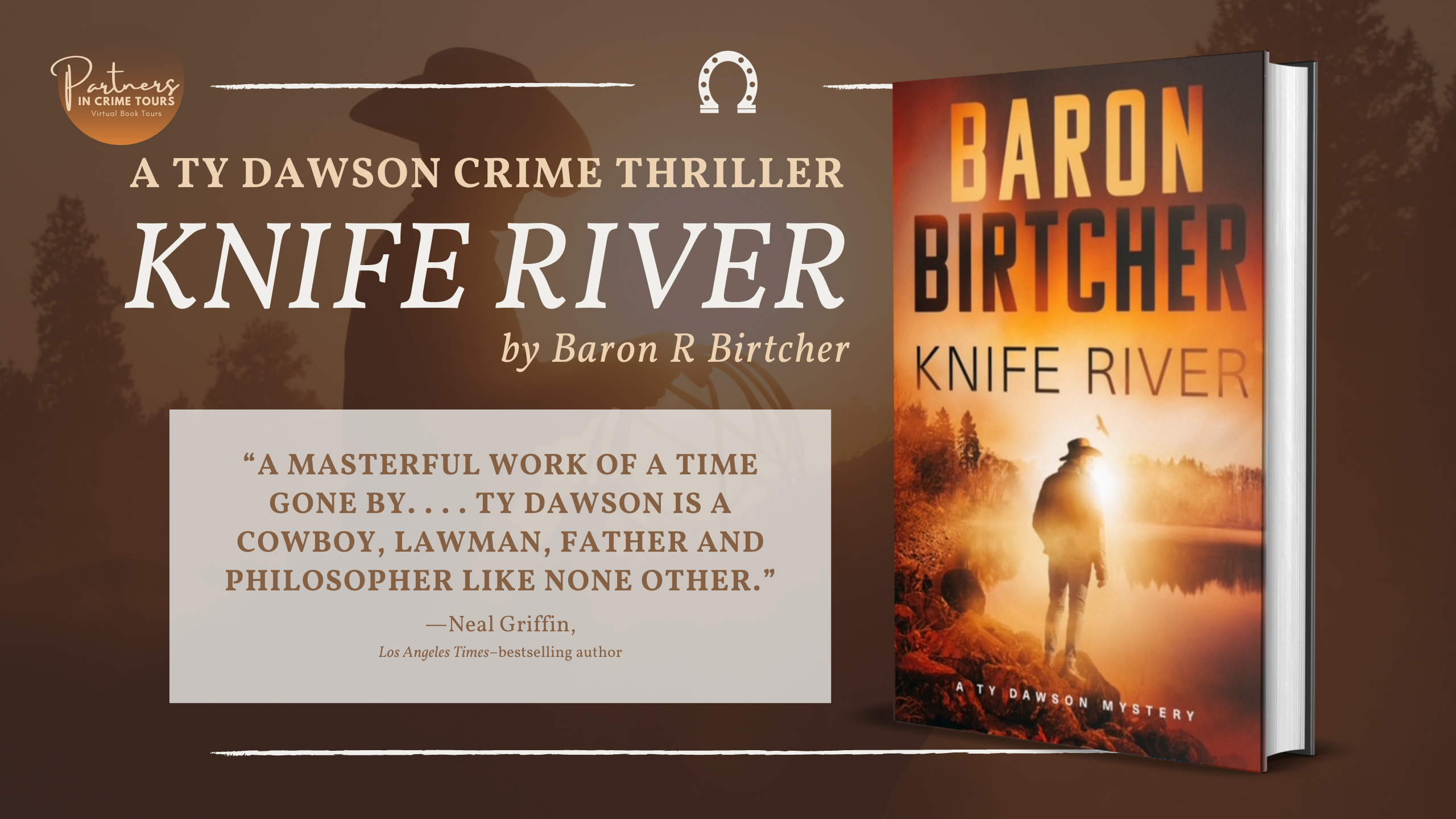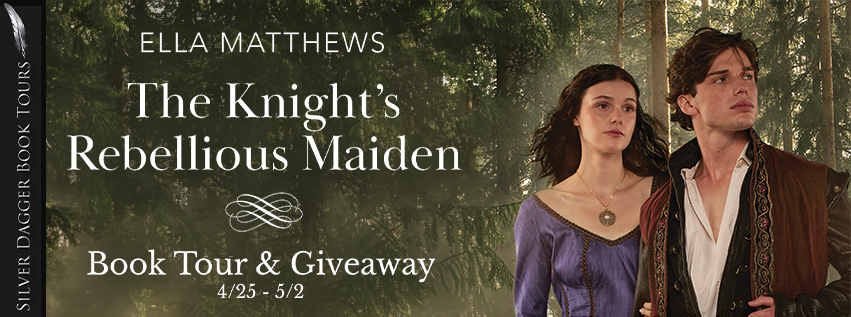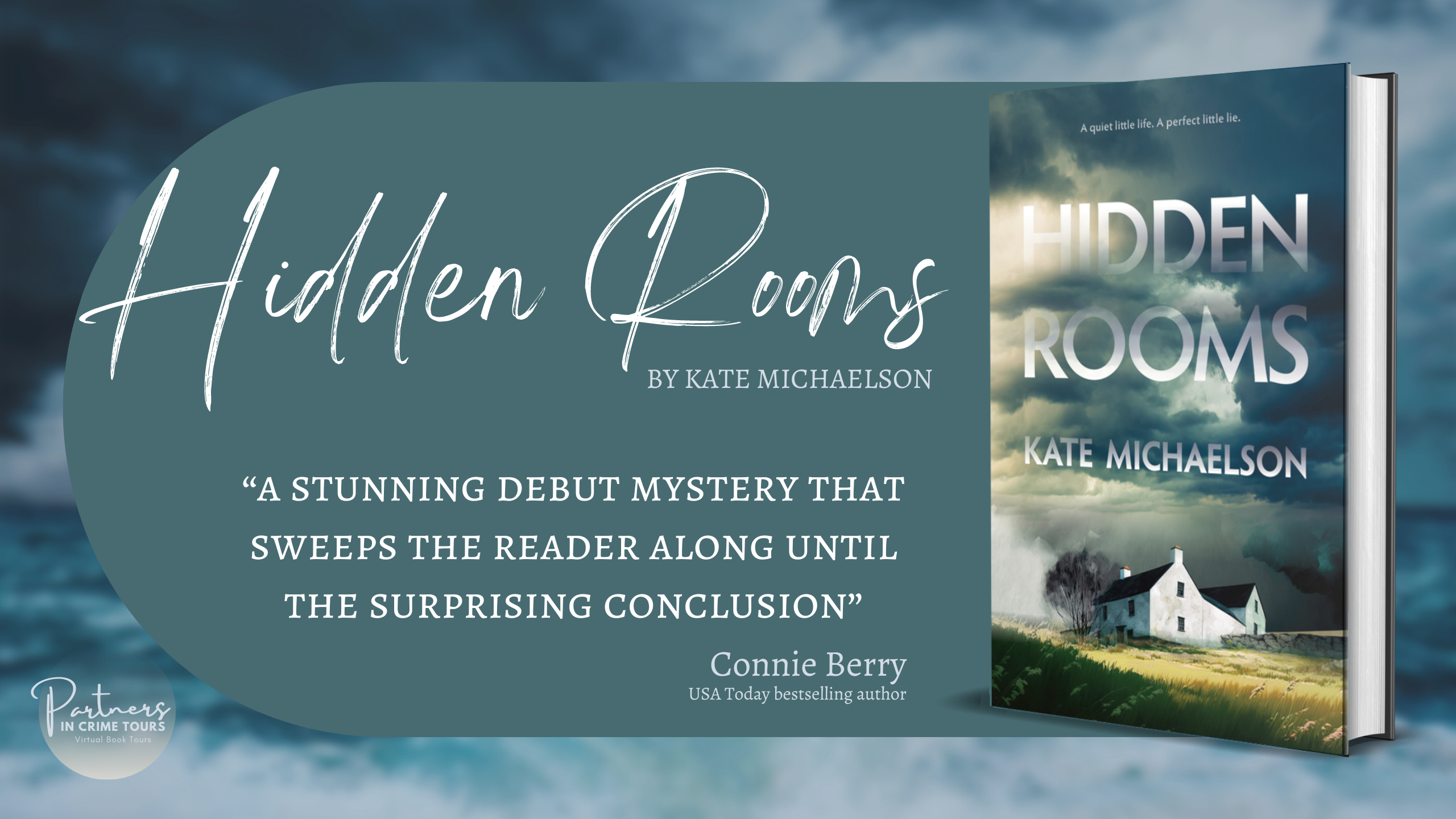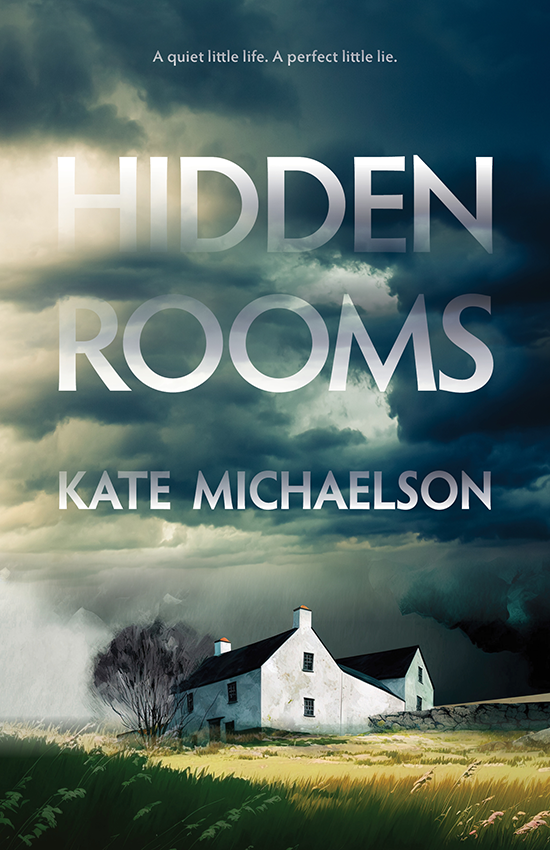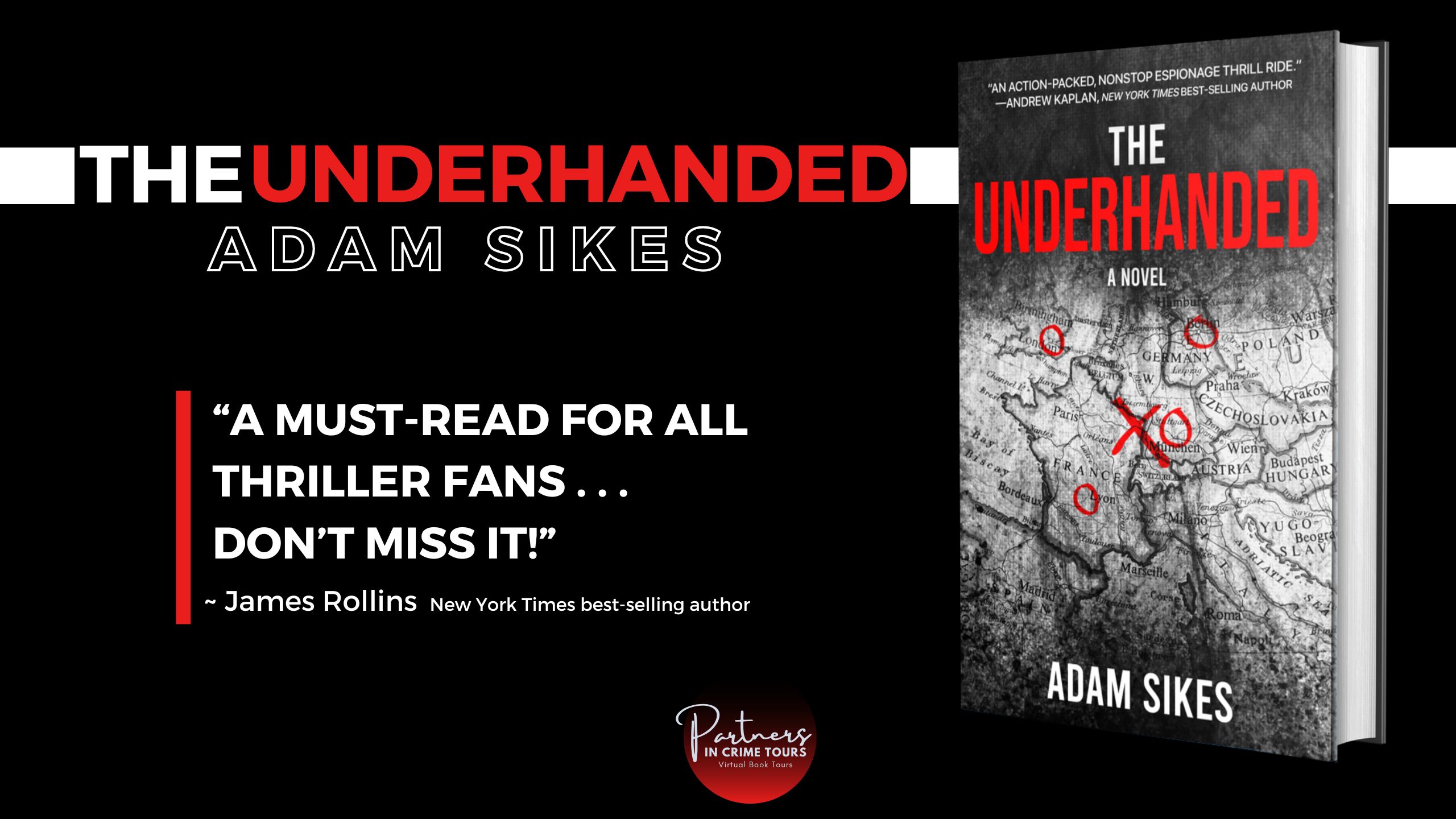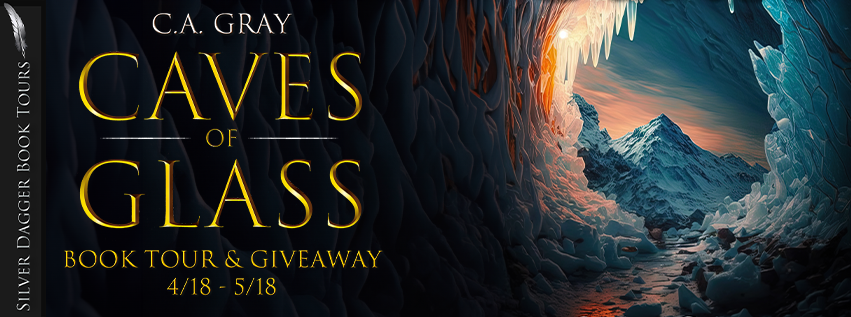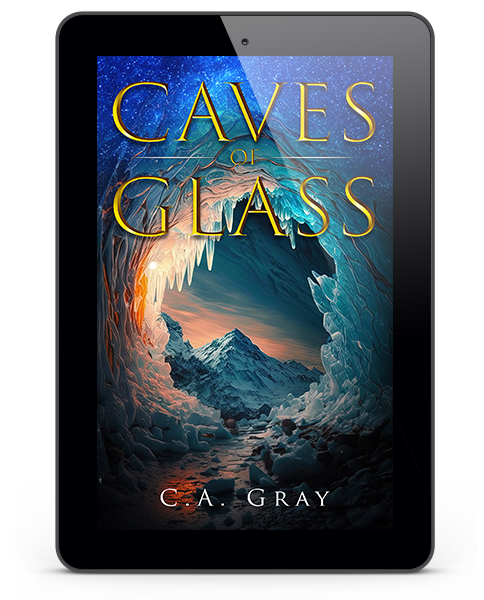April 15 - May 10, 2024 Virtual Book Tour
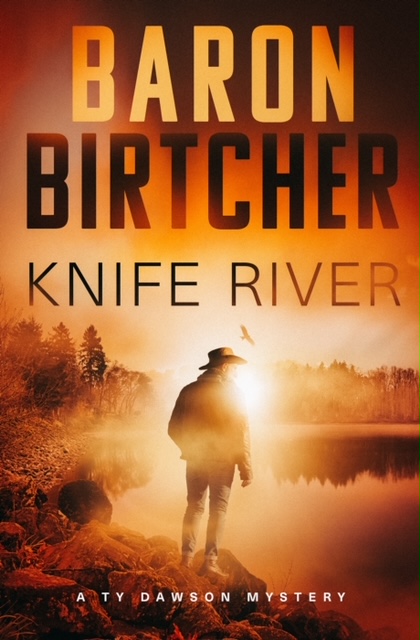
A sheriff fighting to keep the peace in 1970s Oregon faces a shocking secret from his town’s past, in this crime thriller from the author of Reckoning.
There are rules in the West no matter what era you were born in, and it’s up to lawman Ty Dawson to make sure they’re followed in the valley he calls home. The people living on this unforgiving land keep to themselves and are wary of the modern world’s encroachment into their quiet lives.
So it’s not without some suspicion that Dawson confronts a newcomer to the region: a record producer who has built a music studio in an isolated compound. His latest project is a collaboration with a famous young rock star named Ian Swann, recording and filming his sessions for a movie. An amphitheater for a live show is being built on the land, giving Dawson flashbacks to the violent Altamont concert. Not on his watch.
But even beefed up security can’t stop a disaster that’s been over a decade in the making. All it takes is one horrific case bleeding its way into the present to prove that the good ol’ days spawned a brand of evil no one wants to revisit . . .
Book Details:
Genre: Crime Thriller
Published by: Open Road Media
Publication Date: April 23, 2024
Number of Pages: 338
ISBN: 9781504086523 (ISBN10: 150408652X)
Series: The Sheriff Ty Dawson Crime Thriller Series
Book Links Amazon | Barnes & Noble | BookShop.org | Goodreads | Open Road Media
Prelude:
FACING WEST
SOME SAY THAT to be born into a thing is to be blind to half of it. Oftentimes, the things we seek and discover for ourselves are those we hold most dear.
Any cattleman will tell you that a ranch is a living thing. Not only the livestock that graze the meadowland, but the blood that nourishes the hungry soil, the trees that inhale the wind, and the rain that carves runnels into the hardpan that, in time, grow into rivers. The Diamond D is no different in that respect, some would even say it was the beating heart of Meriwether County, Oregon.
As both a stockman and the sheriff of this county, I believe this to be true.
But the events that unfolded in the autumn of 1964 cast a cloud across that land. Not just across my ranch, but the entire valley, though they didn’t bear their terrible fruit until nearly a dozen years later, in the spring of 1976. The incidents still haunt me, though others paid a steeper price than I; some with their lives, or the lives of their loved ones, while some forfeit their sanity, and still others with their souls.
That is where this story begins.
CHAPTER ONE
LAMBS AND LIONS hold no sway over the springtime here in Meriwether County. Some years it will snow through mid-May, other times the golden sun rides high and bright, and the river flows fast, clear and deep with high-country melt on the first day of March. Most years, it’s both, with Mother Nature keeping her whims to herself until she alone decides to turn them loose upon us.
But this particular Saturday morning was unusually quiet, not even a breath of breeze stirring the leaves of the cottonwoods that grew thick and untamed along the creekbank. I was standing outside on the gallery, sipping my coffee as I leaned on the porch rail, watching my wife, Jesse, hammer the last nail into a birdbox she had made. She must have felt my eyes on her, as she looked up from her work and smiled. A few moments later, she stepped up the stairs to where I stood and kissed me on the cheek, smelling of sawdust and lemongrass tea.
“The bluebirds are back,” she said. “I just saw them.”
“You haven’t lost your knack for building those things.”
“Plenty of practice. You got home late last night.”
I had spent the previous day transporting a man all the way from Lewiston up to the Portland lockup to await his trial. He stood accused of murdering his own wife and young child. It had been a long, depressing day, and by the time I completed the intake paperwork, locked up the substation in Meridian, and finally drove home to the ranch, Jesse was already asleep.
But this morning, everything in her expression seemed overflowing with hope and expectation. Springtime was her season and always had been.
“Want a hand putting that thing up?” I asked.
She replied by handing it to me, together with the hammer.
She watched me hang the birdbox on a post beside the vegetable garden, outside the kitchen window where I knew she’d spend her quiet mornings secretly observing the bluebirds as they built their nest and reared their brood.
“You plan on helping Caleb pick the new cowboys today?” She asked me when I came back inside.
It was the time of year when we hired a few temporary hands for Spring Works, when we’d round-up the cattle and calves from every corner of the ranch; we’d vet, brand and sort the livestock, and mend a perpetual string of breaks in the wire along miles of fenceline before we turned the herd out to the pastures for summer grazing. The Diamond D employed three permanent cowboys in addition to me and old Caleb Wheeler—our foreman for more than three decades—but with 63,000 deeded acres and another 14,000 under a Land Management lease, Spring Works was more work than the five of us could handle in the short span of time required to get it done. Every year a couple dozen hopeful itinerant riders, ropers, rodeo bums and saddle-tramps would answer the call for a temporary employment opportunity, and every year Caleb Wheeler got more riled up about what he viewed as the eroding quality of the contemporary American cowboy. He’d cuss and grump and holler about it, but he’d end up settling on three or four hands he reckoned could help us get the job done with a minimum of aggravation.
“I’m staying out of it this year,” I said, and Jesse grinned. “Figured I’d lay in a cord or two for the woodshed instead, before the weather gets too hot.”
“I saw some deadfall down by Corcoran’s,” she said.
“That’s where I was headed.”
“Make you some lunch to take with you?”
“I don’t intend to be out that long.”
“Good to hear,” she said, and winked at me before she turned, and stepped inside the house.
* * *
HALF AN HOUR later I was straddling a fallen spruce, angling the chainsaw to buck the trunk into three-foot rounds that I’d later split into quarters with the long-handled axe. The solitary labor, the sweat staining my shirt, and the burn down deep inside my muscles were a welcome balm after the week I’d had, and the air was rife with the smell of pine tar, sap and chain oil. I looked up and caught some movement in the distance, where the BLM forest gave onto an open range already knee deep with wildflowers and whipgrass. I recognized Tom Jenkins’ roping horse moving hellbent-for-leather across the flats, with young Tom leaning across her withers, one hand on the reins and the other holding his hat in place on top of his head. His mount was an admirable animal, a grullo Quarter Horse that stood nearly seventeen hands, fast and thick through the chest. Tom Jenkins handled her well, and he was beelining in my direction like he had something on his mind.
I killed the power on the chainsaw and set it in the bed of the military surplus jeep I use when I do ranch work, stepped over to the fence and took a splash of water from the canteen I’d hung in the shade of a young cedar. I didn’t have to wait long before Tom pulled up in a skidding stop inside a cloud of dust, throwing a cascade of torn earth and pebbles through the barbed strands of the wire.
“Mr. Dawson,” he said and touched a finger to his hat brim, sounding nearly as breathless as his horse. “I was hoping that was you.”
“What are you doing out here all by yourself?” I asked, but suspected I already knew the answer.
When I’d first met Tom Jenkins, he was nothing but a kid with a limp handshake, no eye-contact, and the familiar slope-shouldered gait and posture of the typical aimless teenaged slacker. At that time, he’d been well on his way to serious trouble, the variety and scope of which would have landed him in a six-by-eight jail cell where the other inmates would have eaten him alive.
He is the nephew of my neighbor to the south of me, Snoose Corcoran, whose sister had sent the kid up here from California’s central valley to his uncle’s ranch in southeastern Oregon in hopes of putting some distance between young Tom and his unquestionably poor choices of acquaintances. Ill-equipped to deal with the boy himself, Snoose begged me to take the kid on as a maverick, and I’d reluctantly agreed. After six months working side by side with trail hardened cowboys on the Diamond D young Tom Jenkins’ attitude had been readjusted, straightening both his spine and fortitude. Now, at barely 18 years of age, Tom had assumed the reins of the floundering Corcoran cattle operation from his uncle Snoose, who had been gradually disappearing into a bottle.
“Cow and a calf went missing from my place,” Tom answered. “Fence busted by the westward line, and I figured them two mighta headed for the water.”
My ranch hands ended up nicknaming the kid “Silver,” after he’d astonished us all by stepping up and winning a silver buckle for the Diamond D in the team roping event at the annual rodeo. I knew Tom secretly treasured the handle they’d bestowed, wore it like a medal, but I never spoke it; that was between my men and him.
“Where’s your uncle?” I asked.
His shrug spoke sorrowful volumes.
“So, what set you hightailing over here to see me, son?” I asked. “What’s the trouble? Besides the missing beeves.”
“I was up there on the other side of the tree line,” he said. He twisted sideways in his saddle, took off his hat and gestured with it toward a distant stretch of blue sky. “There was an eagle making low passes over the meadow, so I stopped to watch it for a minute. It was so still and quiet out there, I could hear the eagle calling out while it was gliding on the thermals.”
“You don’t see something like that every day,” I said. “Not even out here in the boondocks.”
“No sir, that’s a fact,” Tom said. “But, while I sat there watching that creature flying, all of a sudden and out of nowhere, a helicopter come buzzing across the ridge, you know the one…”
“Big stone bluff, looks like somebody cut it down the middle with a KA-BAR knife.”
“That’s the one,” he said. “Well, that chopper came in fast, and went straight toward that bird…” The young man’s voice trailed off, his face contorted like he’d encountered a foul odor. “They circled it as it flew, like they were teasing it. Two men inside the—whattaya call it?”
“Cockpit.”
“Yeah, the cockpit. Then they started closing in on him, chasing it. The guy in the passenger seat had a rifle in his hands. I could see the barrel sticking out.”
What Tom was describing to me was not only a despicable and loathsome act, it was a serious crime. The mere harassment of a protected species is a federal offense; hunting and killing one merely for the sick thrill of it was another matter entirely.
“What happened, Tom?”
He swallowed drily, shook his head and looked down at the ground between us.
“He shot that bird right out of the sky, sir,” he said. “That eagle wasn’t even doing nothing, just gliding circles on the wind, and those assholes—sorry, sir—they shot him cold dead.”
I could imagine the creature’s confused and lonely cry as it spiraled down, bleeding, terrified and helpless, to the earth.
“You pretty sure about the location, Tom?”
“About four, five miles thataway, near the bluff, where the river makes that sharp bend to the south.”
“Did you get a look at either of the men?”
“Naw, they were too far away and moving pretty fast. But I got a good look at the whirlybird.”
I asked him for a description of the helicopter, and I knew right away he was referring to a Bell H-13, known to soldiers as a “Sioux.” They’d been in common use as scouting and medical evacuation aircraft by the military. I’d seen them every day when I was stationed in Korea.
“Like the choppers on that TV show?” I asked.
“Yes, sir. Exactly like on M*A*S*H.”
“Big glass bubble on the front? No doors? Looks kinda like a dragonfly?”
“Yes, sir.”
“Did you see any numbers written on it? On the tail? Or maybe on the underside?”
Tom Jenkins pressed his hat back on his head and gazed up at the empty sky beyond the forest, like he could return that beautiful animal to where it rightfully belonged through sheer force of his will. The high peaks beyond the meadow were streaked with deep blue shadows in the sunlight, their cloughs and gorges washed in purple and topped with snow so white it hurt your eyes.
“I’m sorry, sir,” he said. “I don’t remember seeing numbers or anything like that.”
His face took on the aspect of defeat, as though some personal failure had cost the animal its life.
“You did good, Tom. You did the right thing coming to me straight away. There was nothing else you could have done.”
He nodded once, his lips pressed tight, and he leaned down to adjust a stirrup that needed no adjustment.
“You want some help finding your cows?” I asked, thinking he might appreciate the company.
“I can do it, sir, but thank you. I can haze ’em back home on my own.”
“You gotta get eyeballs on the critters first. I can help you, son.”
“Thank you just the same, Mr. Dawson… Sheriff… Hell, I don’t even know what to call you.”
His expression softened for the first time since he’d showed up, a brief and fleeting smile, then his focus drifted far away again.
“Something else, Tom?”
“Just wondering.”
“Wondering what?”
“Do you think you can catch those guys who shot that bird?”
“I’m going to try my damndest.”
His eyes remained fixed on the horizon.
“What’ll happen to ’em if you do?”
I drew a bandana from the back pocket of my jeans, removed my hat, and dried the sweat that had been leaking from beneath the band.
“It’s been against the law to kill an eagle since the 1940s. If you’re not an Indian, you can’t even possess a single feather. If you get caught, you pay a steep fine and then they send you off to jail. If you’re a rancher, you could lose the leases on your land.”
Tom turned his gaze back on me, and I noted for the hundredth time that this young man no longer bore any resemblance to the person he had been on the day he first arrived here from California.
“That punishment don’t seem tough enough,” Tom said. “Not for what I seen ’em do.”
“No, it doesn’t.”
He clucked softly to his horse, and reined her back in the direction from which they’d come.
“I’d better get a move on,” he said.
“Be careful out there, son,” I said to his retreating back, but my words were lost in the distance.
***
Excerpt from KNIFE RIVER by Baron R Birtcher. Copyright 2024 by Baron R Birtcher. Reproduced with permission from Baron R Birtcher. All rights reserved.
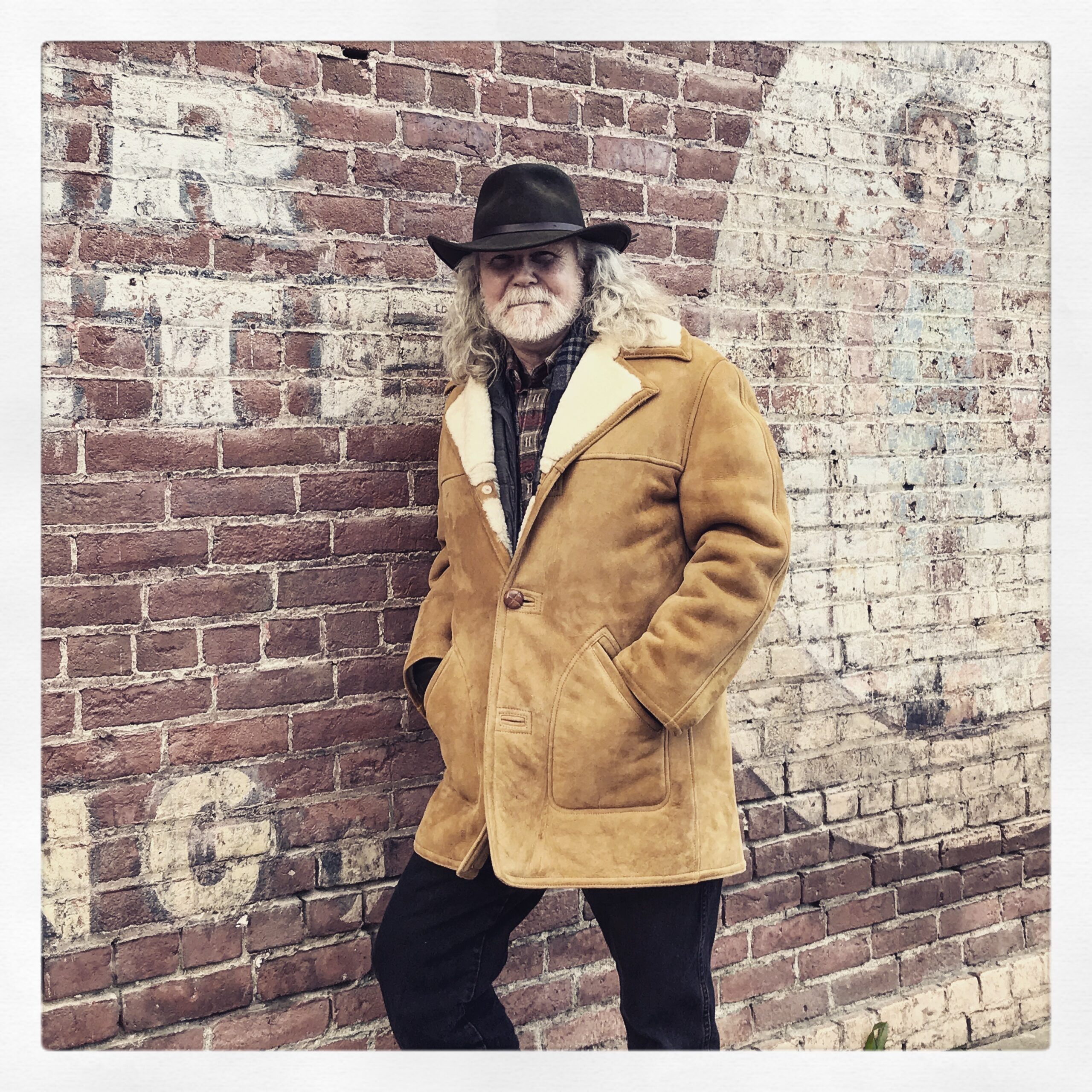
Baron Birtcher is the LA TIMES and IMBA BESTSELLING author of the hardboiled Mike Travis series (Roadhouse Blues, Ruby Tuesday, Angels Fall, and Hard Latitudes), the award-winning Ty Dawson series (South California Purples, Fistful Of Rain, Reckoning, and Knife River), as well as the critically-lauded stand-alone, RAIN DOGS.
Baron is a winner of the SILVER FALCHION AWARD, and the WINNER of 2018's Killer Nashville READERS CHOICE AWARD, as well as 2019's BEST BOOK OF THE YEAR for Fistful Of Rain.
He has also had the honor of having been named a finalist for the NERO AWARD, the LEFTY AWARD, the FOREWORD INDIE AWARD, the 2016 BEST BOOK AWARD, the Pacific Northwest's regional SPOTTED OWL AWARD, and the CLAYMORE AWARD.
Baron's writing has been hailed as "The real deal" by Publishers Weekly; "Fast Paced and Engaging" by Booklist; and "Solid, Fluent and Thrilling" by Kirkus.
"YOU WANT TO READ BIRTCHER'S BOOKS, THEN YOU WANT TO LIVE IN THEM"
~ Don Winslow, NYT Bestselling author
"BIRTCHER IS PART POET, PART PHILOSOPHER, AND A CONSUMMATE WRITER"
~ Reed Farrel Coleman, NYT Bestselling author
"REMINISCENT OF THE LATE, GREAT ELMORE LEONARD"
~ Shots Magazine (UK)
Catch Up With Baron R Birtcher:
Facebook - @BaronRBirtcher
Goodreads
BookBub
Instagram - @baronbirtcher_author
Twitter/X - @BaronBirtcher22
Tour Participants:
Visit these other great hosts on this tour for more great reviews, interviews, guest posts, and opportunities to WIN in the giveaway!
Win Big! Enter Now for Your Chance to Win!
This is a giveaway hosted by Partners in Crime Tours for Baron R Birtcher. See the widget for entry terms and conditions. Void where prohibited.
